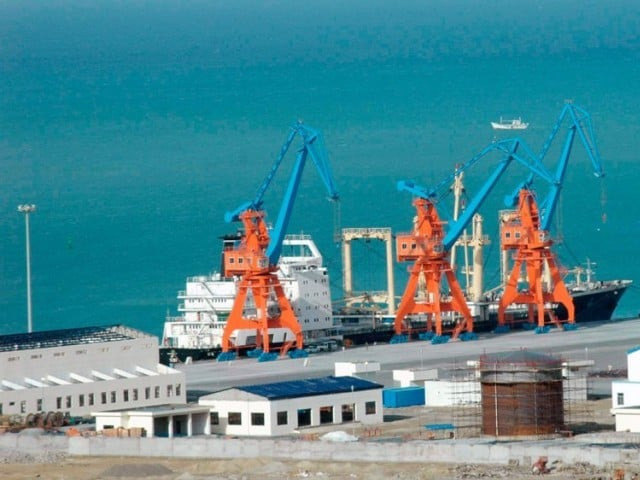Can Pakistan pay CPEC loans?
The Pakistani economy is not beyond saving — because it never did anything as foolish

Planning Commission deputy chief promises to end load-shedding next year. PHOTO: FILE
Let’s say a friend of yours sees this chronic deficit problem you have and lends you some money because they are afraid if you default on all of your payments then you might get angry. Let’s call this friend the IMF. You might be a little upset that the IMF has put you on a list with Afghanistan, Sierra Leone, Greece and 37 other countries that require these ‘bailouts’. But at least you never made a decision as fiscally cancerous as, say Britain did via its inane Brexit.
Pakistan rejects use of Chinese currency
Your situation is dire, so you swallow your pride and accept the money (a dozen times since 1988). In return, you are told to start making strides to resolve your spending habits by hitting a few metrics that they get to assign you. For example: they do not like the way your currency is overvalued by about 20% via a managed float regime. A managed float regime (or dirty float) is a complex bit of high finance jargon which describes a system of economic management where Ishaq Dar yells at enough people so that, economically, things look good. Reality only comes knocking post-election cycle when the duct-tape starts peeling.
What could go wrong with someone being lent money? It is not as if the IMF consists of nation-states that are drowning in debt themselves. It is not as if the IMF’s largest contributor by far, the United States, has a Federal Reserve System chairman who recently expressed an intense anxiety over its $20 trillion national debt. It is not as if the said nation is now run by a man whose race-baiting antics bounce wildly around the walls of the White House, sending its staffers into panic attacks galore. Sad! All this to say that the plug could be pulled on future loans for a great number of reasons. Who is going to bail you out then?
Enter China. What principle does China adhere to more than ‘love your neighbour as yourself (apart from India)’? China likes you. You are like the little brother that Hong Kong never was. China even agrees to build you a nice corridor. An economic corridor! That sounds like exactly the kind of thing that makes money.

But the math on CPEC is grim. About 65% of the early project loans (some $28 billion) are not on the same terms as those provided by the IMF. They have a roughly 7% interest rate attached. If you think you may somehow manage paying back $28 billion, then I regret to inform you that a little less than $40 billion more at similar rates are on the way. You are the nation-state equivalent of an overdrawn credit card and, over the last decade, the Chinese have shown that they are as skilled at debt-collection as they are at power-plant construction. Monetary compensation is optional since surrendering small chunks of sovereignty is payment enough. Just ask Sri Lanka. You may be reminded of sunny days when the IMF never really bothered you when you could not make payments. They chide your lack of structural reform and how obvious your tactics to enact superficial actions are, but they are so used to disappointment that they just ask you to try your best next time. They point out that at least you did not abandon the eurozone in a fit of petulant, populist protectionism like, say, Britain did via its ridiculous Brexit.
As we head towards further rupee volatility, we need to have transparent checks and balances in place that can prevent finance ministers from artificially propping up the currency by pressuring the State Bank and others.
As another IMF, eurozone, and/or the World Bank bailout looks less likely than ever before, we need to create some degree of meaningful, long-lasting economic reform via a series of ambitious but necessary measures. They include wiping out the obvious corruption in our stock exchanges and corporations to promote Capital Markets investments, setting ablaze any and all rent-seeking subsidies (which would be most of them), and dismantling state-owned corporations. That would be a start.
‘Currency closer to equilibrium’ as rupee hits record low
As our nation continually accepts high-interest rate commercial loans from the Chinese, we should create an independent and objective third party that is able to not only track every aspect of the CPEC deal, but also keep the citizens informed of its details in layman terms. The government has done a poor job of promoting the transparency of the process, although they have fought off the yuan’s encroach into Gwadar… for now.
The Pakistani economy is not beyond saving — because it never did anything as foolish as, say Britain did via its mad Brexit. It is not even in dire straits. But without proper drainage, its worst elements will continue to eat its most promising ones.
Published in The Express Tribune, December 14th, 2017.
Like Opinion & Editorial on Facebook, follow @ETOpEd on Twitter to receive all updates on all our daily pieces.
















COMMENTS
Comments are moderated and generally will be posted if they are on-topic and not abusive.
For more information, please see our Comments FAQ